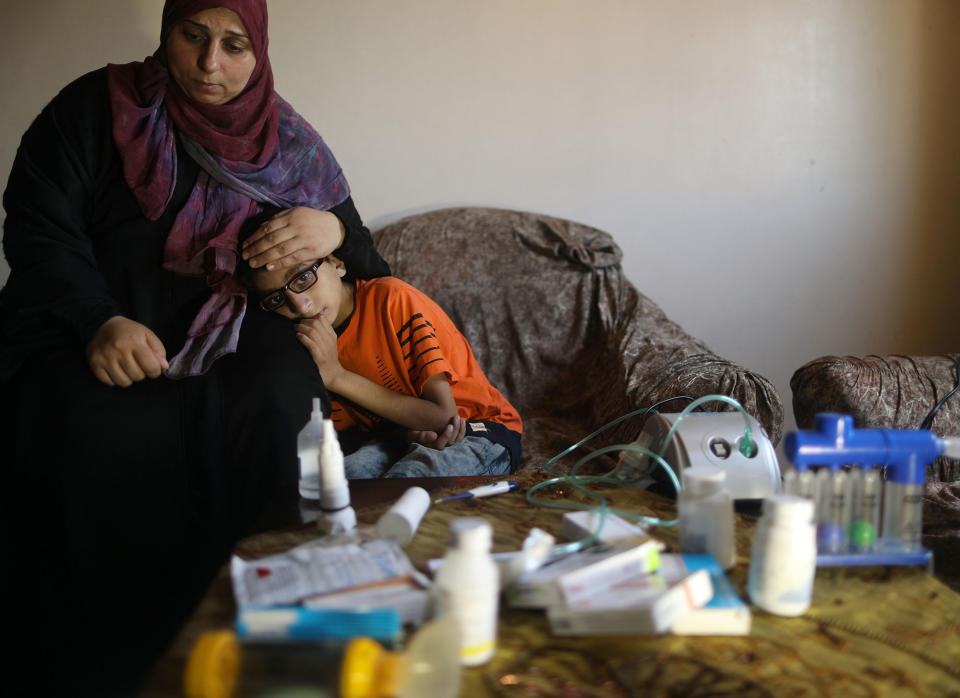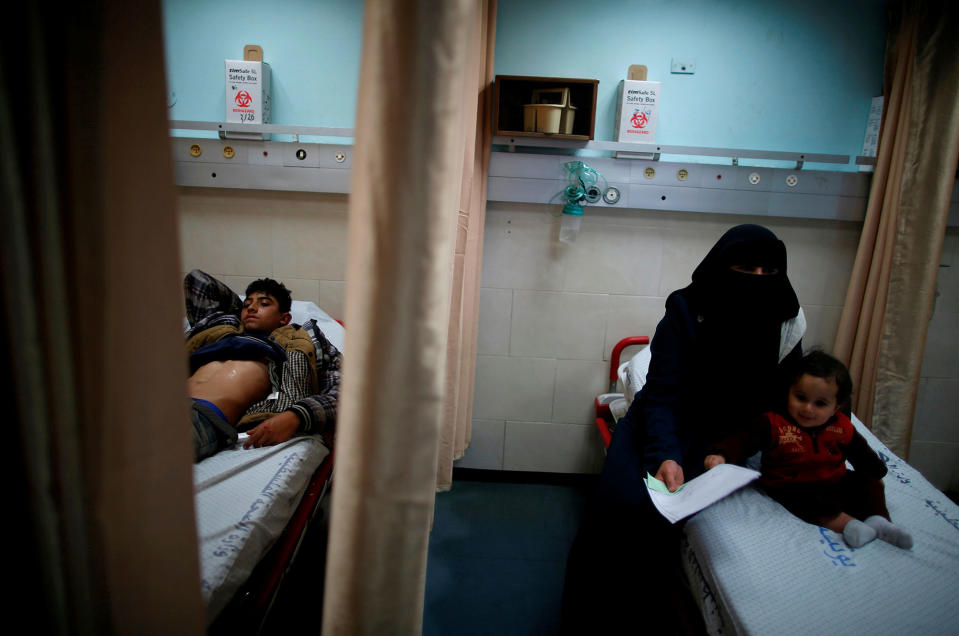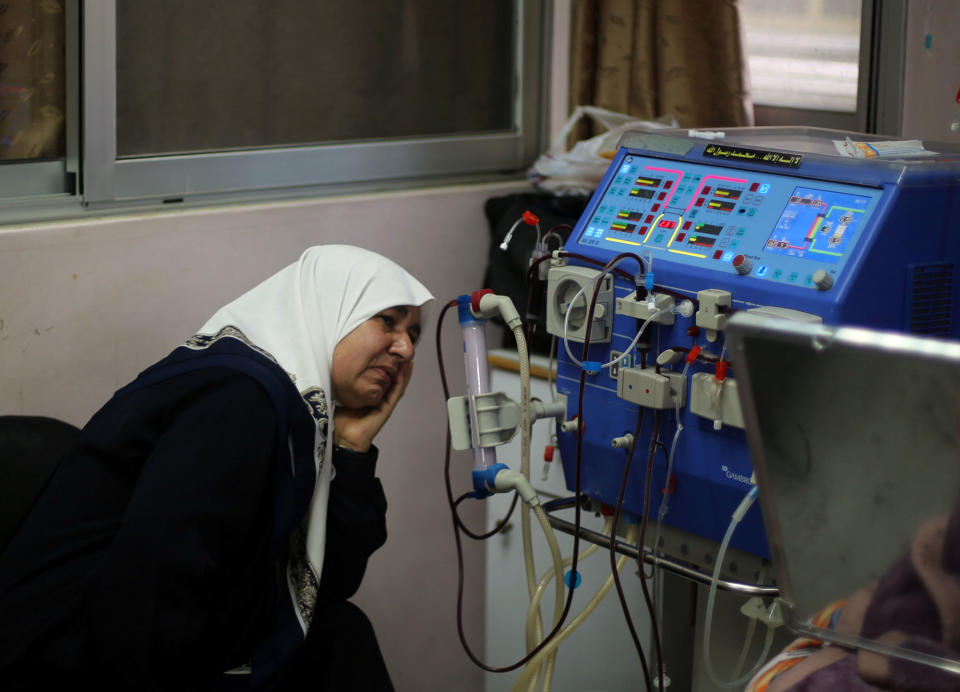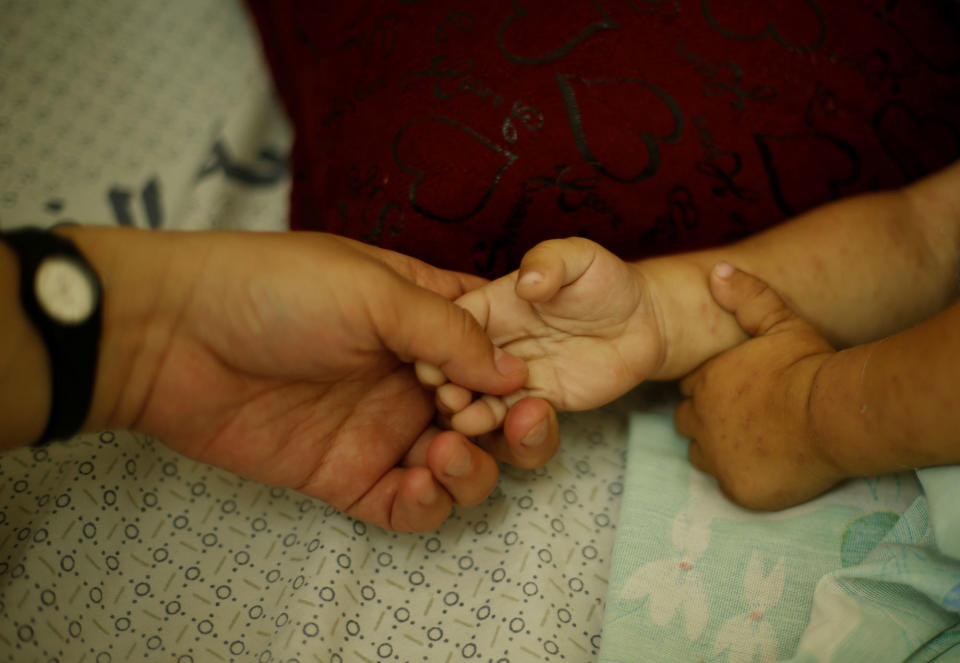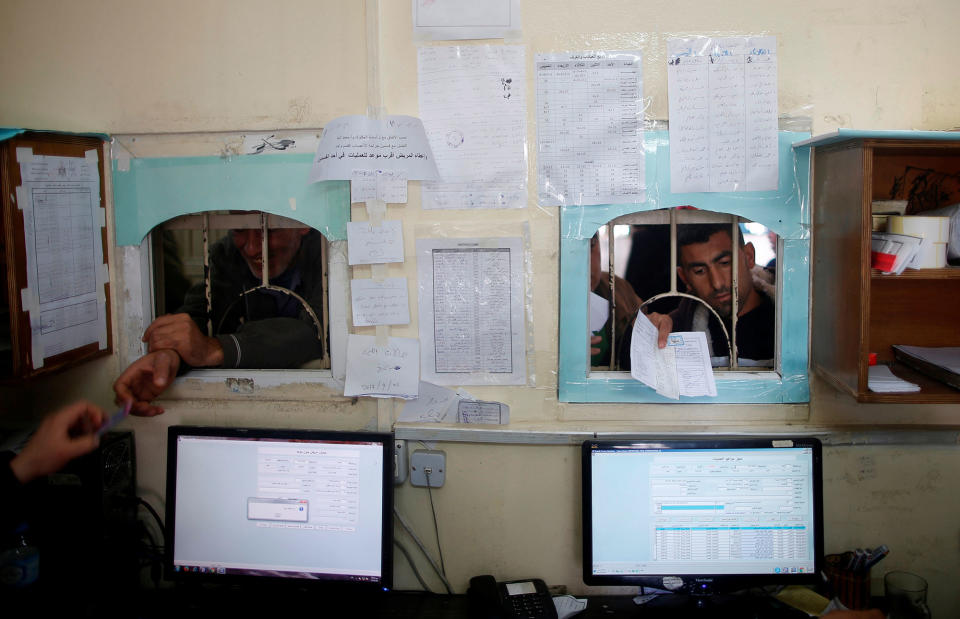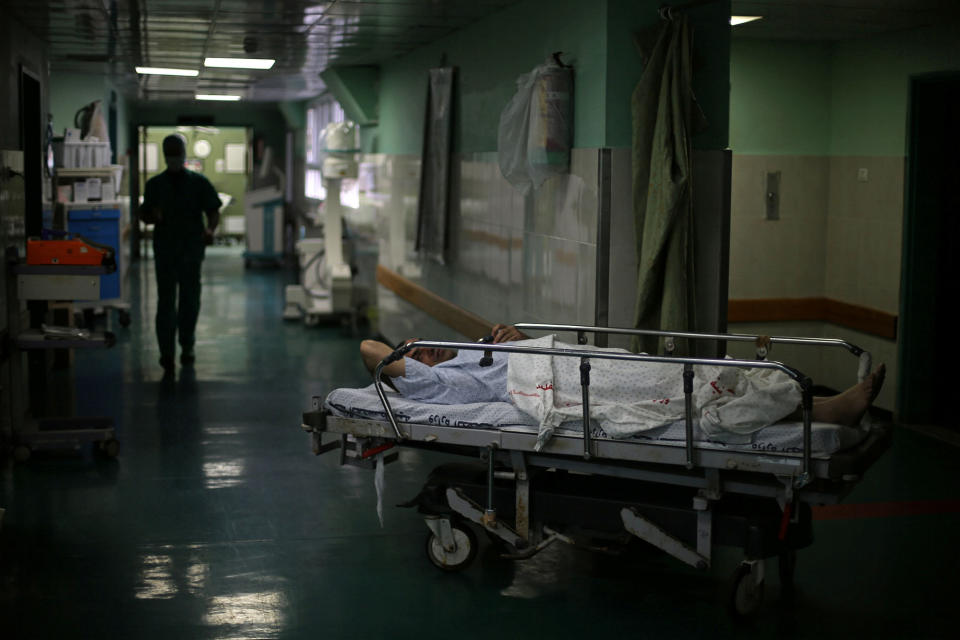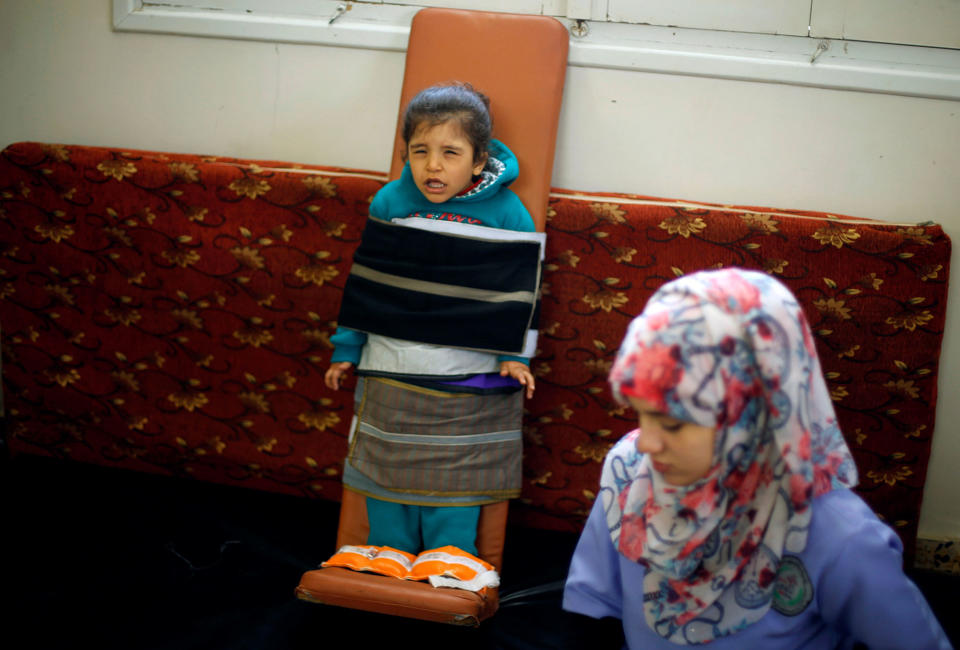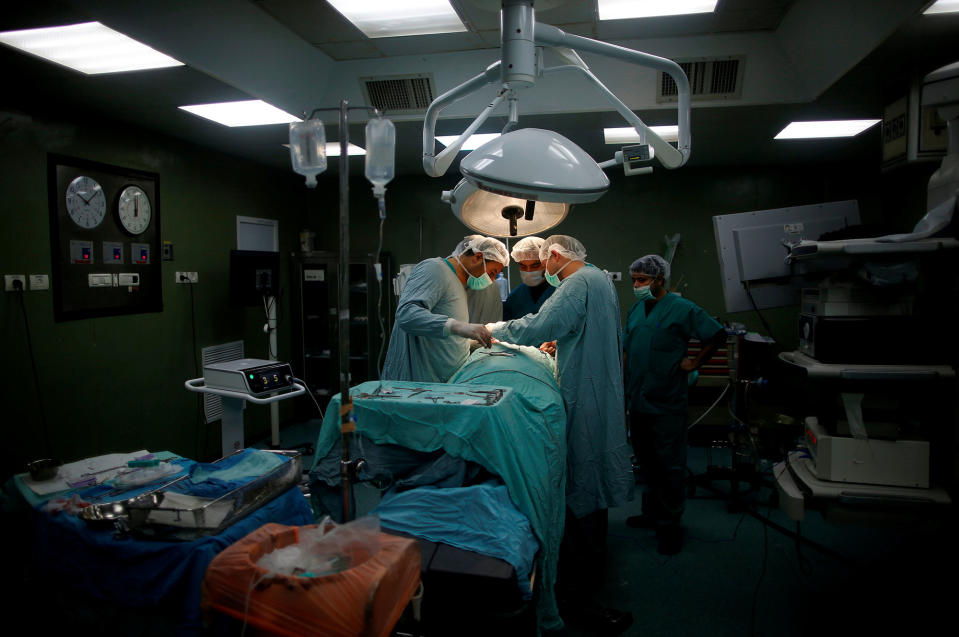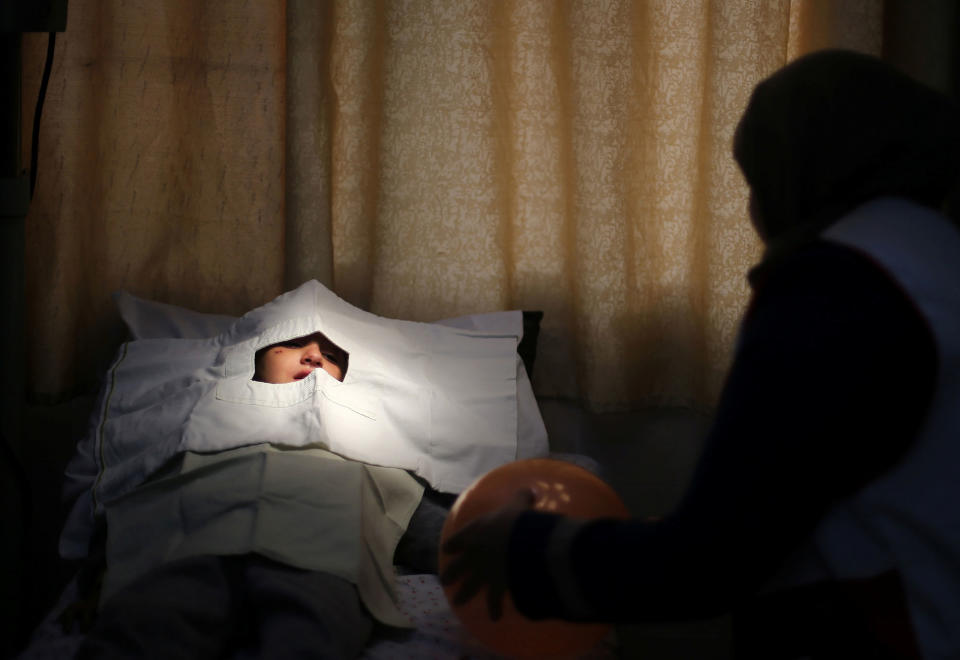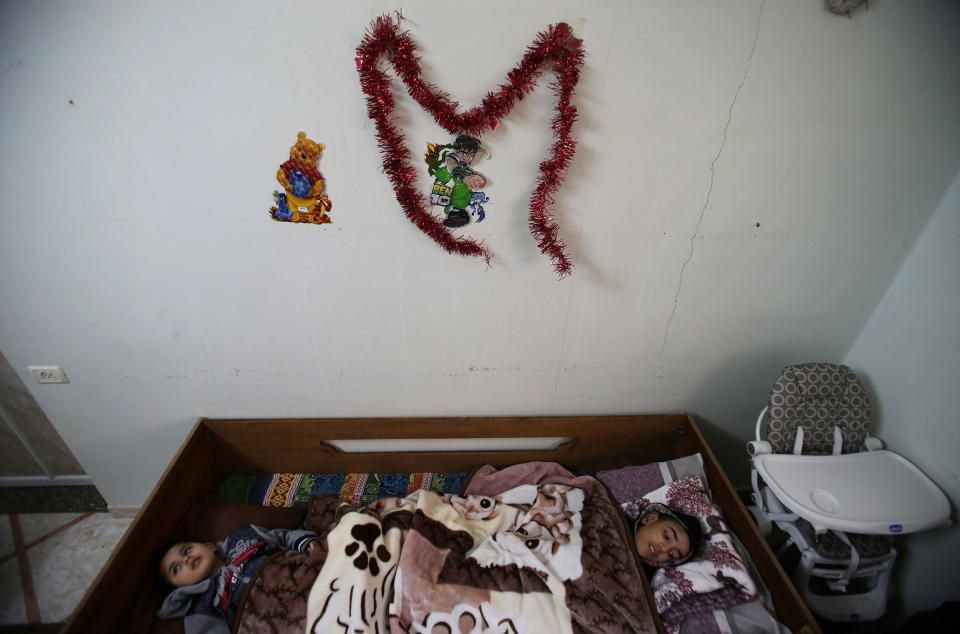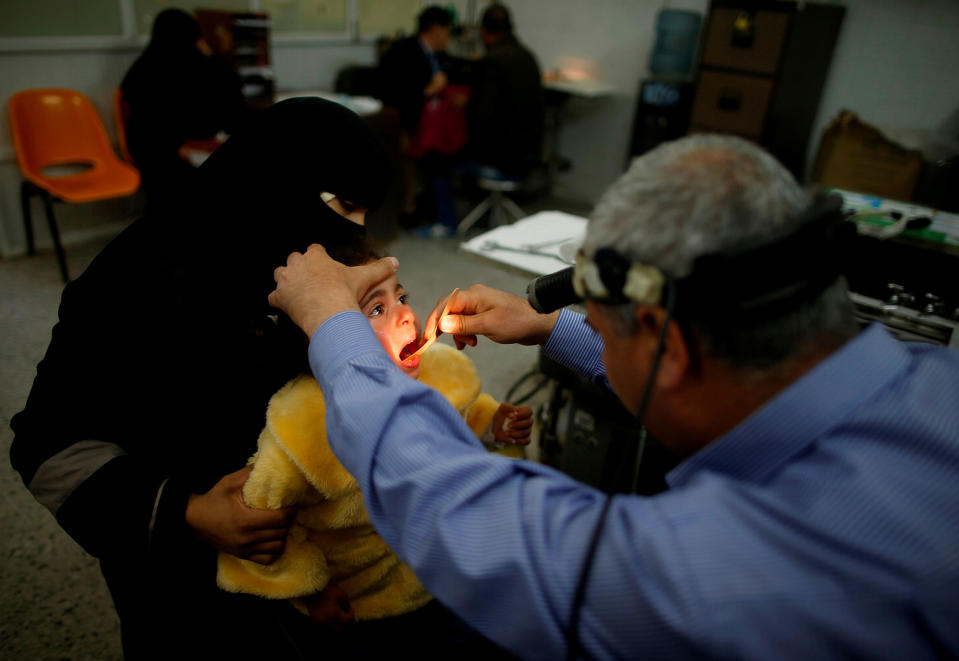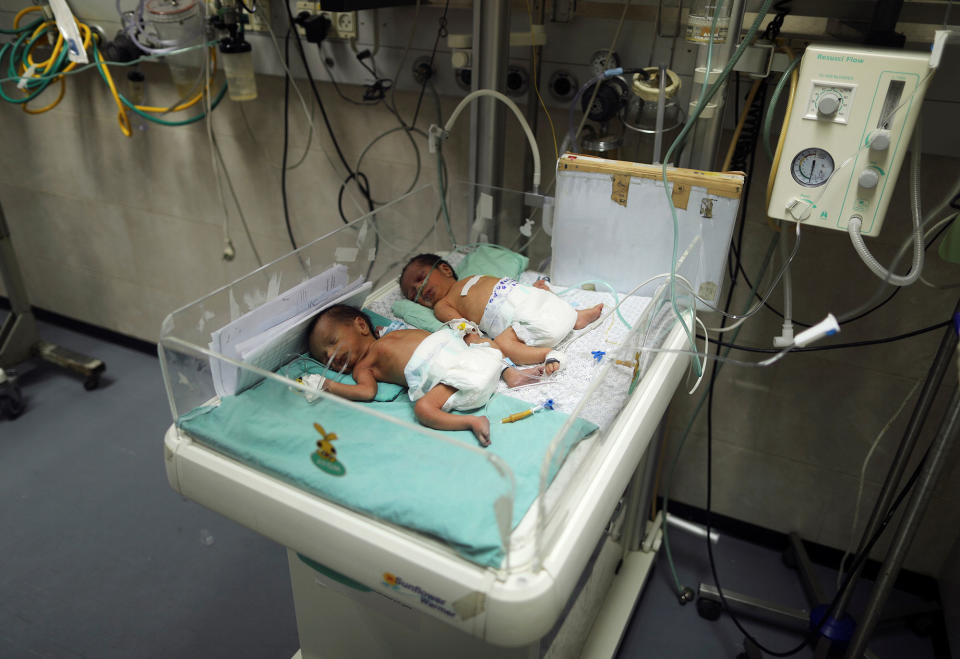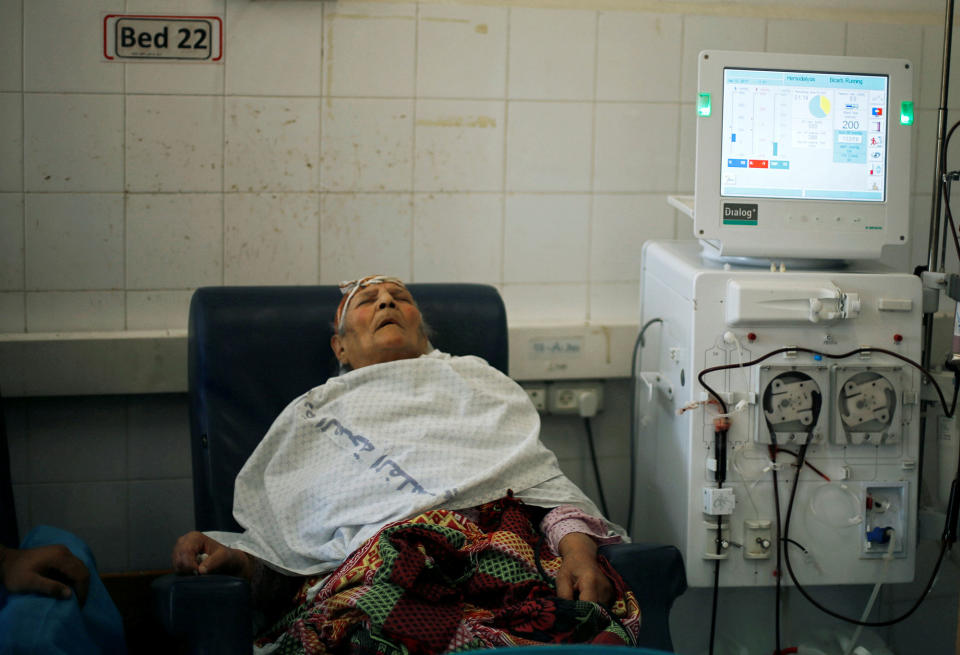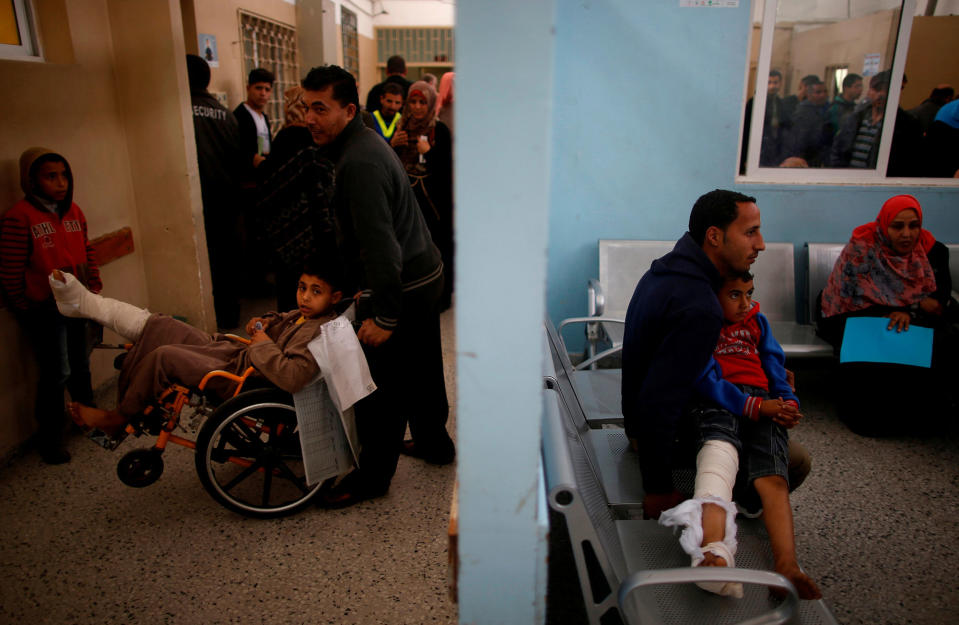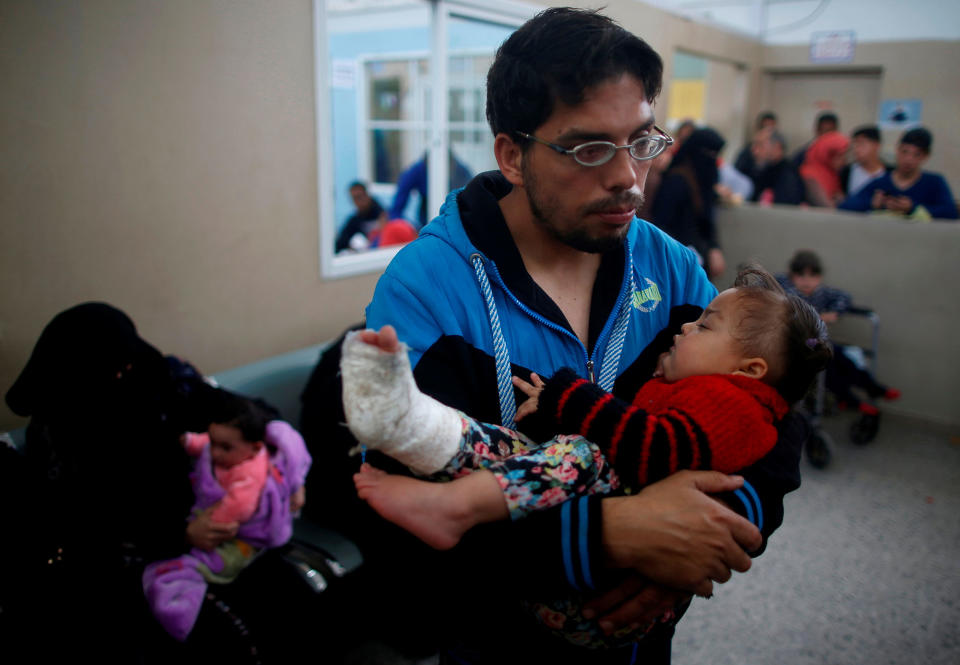Gaza's desperate health care crisis
Ritta al-Jalees doesn’t care who’s to blame for the deteriorating state of health care in Gaza. All she wants is to ensure her three sons get the help they need to breathe.
The boys, aged nine months and six and seven years, all of whom suffer from cystic fibrosis, are getting weaker because Gaza is running out of the drugs needed to treat the inherited lung disease and because of cuts to power for oxygen pumps and ventilators.
“I blame all sides,” said Jalees, a mother of six, as she held her youngest at Al-Rantissi Hospital for Children in Gaza City. “Are these children at fault?”
Gaza has been under an Israeli blockade since 2007 after Hamas forces seized control of the territory following a brief civil war with security forces loyal to Mahmoud Abbas, the Western-backed Palestinian president based in the West Bank. Egypt, at odds with Hamas, also maintains a blockade.
Although the Israeli blockage has eased somewhat in recent years, a new stage in the struggle between Abbas and the Islamist Hamas is turning the screws on the enclave afresh.
In what is seen as the latest step in an effort to force Hamas to relinquish its control of Gaza, Abbas in June reduced the payments the PA makes to Israel for electricity it supplies to the territory.
The resulting cuts mean that Gaza’s two million people now have only 3 to 4 hours of power a day, forcing hospitals and other medical facilities to rely chiefly on generators and expensive fuel, while many private homes just go without.
Hamas says that Abbas restricted transfers of medicine to Gaza in March, accusing Hamas of failing to reimburse the PA for its purchases, and cut the salaries of its officials in May.
The spokesman for Gaza’s Hamas-run health ministry, Ashraf Al-Qidra, said PA shipments of medicine, especially drugs to treat cancer and cystic fibrosis, have dropped 35 percent since late March.
“We believe the actions of the Palestinian Authority and the Israeli occupation together are undermining the entire health service system in Gaza,” Qidra told Reuters.
Hamas also accuses the PA of delaying the transfer of hundreds of seriously ill patients to Israel or the Israeli-occupied West Bank, actions which it says has resulted in 13 deaths since April.
The PA denies the allegations and accuses Israel of holding back permits. Israel denies the allegations.
Whoever is at fault, a U.N. report released last week said power shortages are deepening a humanitarian crisis, with hospitals in a precarious condition, water shortages increasing and raw sewage being dumped into the Mediterranean because treatment plants aren’t functioning.
“The two million residents of Gaza are suffering through a humanitarian crisis that is entirely human-made,” the report said. “It represents a complete failure of all parties to uphold their fundamental human rights obligations, including the inalienable right to life.” (Reuters)
Photography by Mohammed Salem/Reuters
See more news-related photo galleries and follow us on Yahoo News Photo Tumblr.

